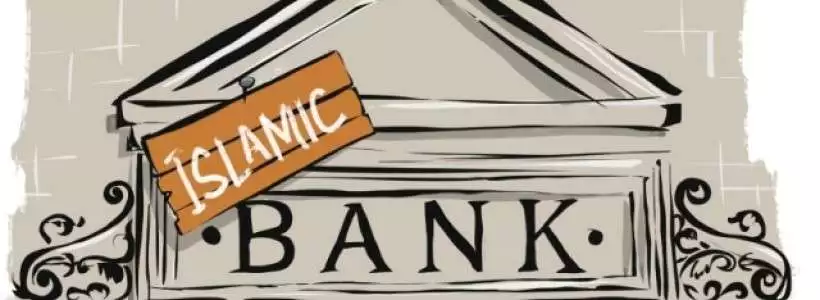The Central Bank of Nigeria, CBN has acceded to rising demand for Islamic financing also known as Islamic banking in Nigeria by increasing the number of Islamic Bank to two.
The apex bank recently announced that it has licensed more banks for operations. Two more commercial banks, Blobus Bank and Titan Bank have been given approval to operate, thus increasing the number of commercial banks in the country to 23.
The CBN also gave approval for Taj bank to operate as an Islamic financing institution.
In 2012, then CBN governor, Lamido Sanusi Lamido approved the formal take off of Islamic banking after it granted license to Jaiz Bank.
Since then, more Nigerians and indeed, faith based organisations have demanded more Islamic banks to be licensed for operation across the country.
Sources in CBN told the magazine that pressure mounted on the apex bank by those dissatisfied with conventional banks, led to the approval, which has now expanded the number to two.
Arbitrary interest charges and other unconventional acts by commercial banks in the country, has opened a window of opportunity for Islamic banks to thrive, analysts say.
Meanwhile, the magazine’s investigations found that call for non-interest banking is a bi-partisan one across faiths and creed in the country.
This is more so, considering that operators of Islamic financing institutions in the country have created products that are attractive and beneficial to the banking public.
Apart from Jaiz Bank, the major operator of full fledge Islamic banking, there are other commercials banks that have created Islamic financing on approval from the CBN.
Stambic IBTC and Sterling Bank are examples of commercials banks selling Islamic banking products. But analysts insist that the two banks have not fully gained the confidence of customers craving for alternate financing.
In spite of this, the quest for the islamic banking has gained support from international Islamic bodies and organisations.
In March, 2017 for instance, Sterling Bank Plc got a $15 million facility from the Islamic Corporation for the Development of the Private Sector (ICD) to expand its operations in this area.
Sterling Bank has since 2016 raised number of branches offering non-interest banking services to 200.
Jaiz Bank on its part has been expanding its operation since it first took off in 2012 in states such as Kano, Abuja and Kano.
It has now opened more branches in Oyo, Kaduna, Katsina and Osun states, raising the number of its branches across the country to 39, Jaiz Bank said in March this year.
How does Islamic bank operate? Why is its operation different from commercial or conventional banks?
According to Jelil Mustapha, an expert of Islamic financing, Islamic banking is operated in strict Islamic tenets which forbid interest on loans.
“While commercial banks buy and sell money and benefit from interests, an Islamic bank collects deposits from customers, invest same in some commercial activities, such as property business, whatever profit is made from the transaction is now shared at agreed percentage by the bank and depositor,” Mustapha said.
He explained that in most cases the transaction is carried out with the approval or consent of depositors.
He said the major similarity between commercial and Islamic banks is “that both are risk-takers.”
Like the money banks “depositors are not guaranteed profit or remuneration,” he said.
Bola Ayedegbe, a rice seller in Daleko market, Lagos told the magazine that her faith conforms with the way Islamic banks operate.
According to her, Islamic religion forbids a banking system that thrives on interest based loans or usury. She said since CBN licensed the operation of Islamic bank, she has opened accounts with one of the braches of Jaiz Bank in Lagos.
Despite some challenges “the acceptance of Islamic bank will grow as other people begin to understand that peace of mind is the ultimate in all human endevours,” she said.
Another trader, Bitrus Bulama said his faith as a Christian has not prevented him from taking advantage of alternate banking provided by non-interest financing.
According to him, he embraced Islamic banking as a result of its customer friendly products.
“A situation when you can only get a loan from commercial banks by being charged bogus interest is not palatable. In fact, the manner in which they charged you the interest is not transparent most of the time,” he said.
Some Islamic banking products include Musharakah, where the bank carries out financing that is not related to the collection of a certain percentage but participates in the profits received.
In Mudarabah, the bank receives an instruction from a client to invest his/ her money on a certain investment the profit is now shared based on certain proportion.
Others include, Salam, Ijar, Ijarah-wal-Iqtina and Sunset, a compulsory tax (2.5%), according to the Koran, levied on the property of wealthy Muslims and directed to support the poor population of the Muslim society and create projects for improving the life of the poor.
There’s also Qard Hassan and Bai bi sila, a transaction in which the buyer pays part of the advance for goods.
Financial experts insist that demand for Islamic banking will grow among Nigerian Muslim population and other customers who prefer alternate/non-interest banking system.
Discover more from The Source
Subscribe to get the latest posts sent to your email.








